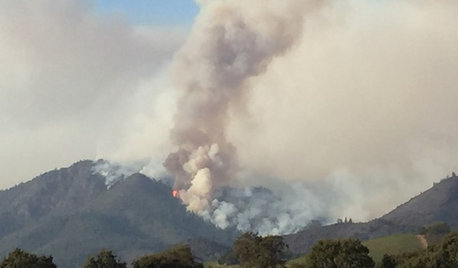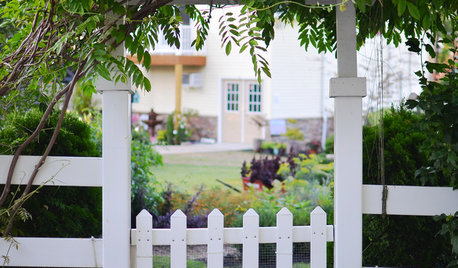Horse Racing and Love (of money)
Alisande
5 years ago
Featured Answer
Sort by:Oldest
Comments (35)
Related Discussions
Cannot seem to finish the race - Climara or Bi - est? Safety etc.
Comments (2)Been there done that. this is sort of embarrassing to talk about, but here goes. Every doc I saw told me it was atrophy and finally I went to a gyn my daughter recommended and she said it was not atrophy, but an incurable disease, not catching or deadly, just uncomfortable. When I would squat to pick up something from the floor I could feel tissue tearing in that area. The disease is Lichen Sclerosis and what physically happens is the tissue grows over the genital area. In my case it has grown over the urethra, so urine is expelled from the vaginal opening. After the disease is advanced the opening can be as small as a half inch and you can no longer have sex. the pain would be unbearable. I am assuming that we can no long have an orgasm because skin has grown over the sensitive area. The doc said there is no cure and everything has been tried including surgery to repair the area. She said she has 5 year old patients with the same disease. Poor things, I don't know how they will ever be able to have a happy marriage. Not many young men would put up with that condition. If this sounds like your condition, you don't need a doc to diagnos it, just use a mirror. I don't remember when I started having pain in my early 60's maybe, but my husband was really understanding and did not try to make love to me again. I was very lucky in that sense....See MoreAmazing Race - contains spoilers!
Comments (18)LOL I don't think the ugly Americans are the Kentucky team. The have been very respectful and thankful for any help they have asked for. I can understand them just fine! I think they are having a ball and really appreciating the trip. I couldn't believe it when he whistled at the woman walking by the taxi. That took me by surprise! LOL I, too, wanted to shove a salami down her throat. And I don't think it has been NEAR as awful as some years. I remember seasons where all but one or two teams bickered the whole trip. Remember the one guy who people thought might be abusing his wife? I can't remember their names, but it was awful. I have heard that those remote control helicopters are very hard to control. It cracked me up when Mr. Pilot thought it might actually be a REAL copter! lol Very touching to split the money with the one contestant from Kentucky. He said that his daughter is on quite a few prescriptions for respiratory problems....See MoreWhen are we going to stop racing horses???
Comments (4)Horses could be safely raced as 6 year olds, once they have been allowed to mature. However because this would be more expensive and the profits accordingly less, it will never happen. There is nothing inherently wrong with racing fully mature horses whose bones can handle the stress. Running in a pack is one of the most natural activities for a horse and it requires very little training to get a horse to do this. What is frequently termed training is really conditioning, ie getting a horse's muscles and stamina built up over time. Unfortunately race horses are started too early for conditioning to adequately protect them from injury. Horses who compete in endurance rides typically compete until they are in their teens, and fatal injuries are exceedingly rare. The endurance race is a grueling test, but because horses must be at least 5 yrs old (if I remember the rules) to compete, a properly conditioned horse with good conformation can expect a lifetime of good health and competition. This is because they are not pushed beyond their limits when they are too young. The reason for this is because, by and large, the owner/riders are not in it primarily for the money....See MoreAmazing Race..amazing for sure.
Comments (7)Oh My Goodness, what a great ending to a great race! It could have been any of the final 4 teams and I would have been happy. The waxing! Oh My! All that hair and pain! Zev & Justin were the best at that, I laughed out loud! And the drinks! 100 of them! Watching that made my shoulders hurt! I was surprised that the Globetrotters did not do better on the bridge. I guess they are not in such good shape after all. Zev & Justin did so well and were in it, without question...until that dance. I felt sorry for both of them but they never gave up and never found fault with eachother. I liked them and was sorry to see them go. Mallory was a pain. She did a good job with the underwater stuff and in the trailer park but I'll bet that cab driver was about to drive off a cliff with her in the back seat! The Sisters were a good team, did not give up and were able to 'hold it' together until the end. Whew... This was a great season and I'm ready for the next one to start! I hope you all enjoyed it as much as I did! sooey...See Moreamylou321
5 years agoLukki Irish
5 years agolast modified: 5 years agoElmer J Fudd
5 years agolast modified: 5 years agoElmer J Fudd
5 years agolast modified: 5 years agoLukki Irish
5 years agokadefol
5 years agosleeperblues
5 years agoElmer J Fudd
5 years agolast modified: 5 years agoAnglophilia
5 years agoElmer J Fudd
5 years agochisue
5 years agomarilyn_c
5 years agowildchild2x2
5 years ago
Related Stories

LIFE‘I Saw a Glowing Orange Flame Racing Down the Hill to My House’
With more wildfires raging in California, a Sonoma County artist comes to terms with escaping the October fires intact
Full Story
BUDGET DECORATING14 Ways to Make More Money at a Yard Sale — and Have Fun Too
Maximize profits and have a ball selling your old stuff, with these tips to help you plan, advertise and style your yard sale effectively
Full Story
PRODUCT PICKSGuest Picks: Equestrian Chic
Go on the hunt for these furniture pieces, accessories, artwork and lighting options that conjure the beauty of horses
Full Story
HOUZZ TOURSHouzz Tour: A Ranch House Is Reborn in a Los Angeles Canyon
Can you get back to nature in the heart of an urban mecca? This family — and their horses, dogs and chickens — did just that
Full Story
GREEN BUILDINGHow to Harvest Rainwater for Your Garden
Conserve a vital resource and save money by collecting stormwater for irrigation in a barrel or tank
Full Story
ECLECTIC HOMESHouzz Tour: Styles and Eras Mix in a Former Stable Block
Modern touches balance bountiful antiques in a beautifully eclectic home that housed horses in the 1700s
Full Story
GARDENING GUIDES10 Tips to Start a Garden — Can-Do Ideas for Beginners
Green up your landscape even if you're short on time, money and knowledge, with these manageable steps for first-time gardeners
Full Story
FARMHOUSESLight-Filled Artist’s Studio in the Pennsylvania Countryside
An architect creates a soaring space for a still-life painter that references the area’s history and her passion for horses
Full Story
PATTERN10 Fearless Ways With Zebra
Here's how to use this exotic animal print without scaring the horses
Full Story
RUSTIC STYLEHouzz Tour: A Southern Vacation Home Trots Out Equestrian Style
Barn-recalling details give a home near horse stables a relaxed vibe that suits both the owners and the pastoral site
Full Story



marilyn_c